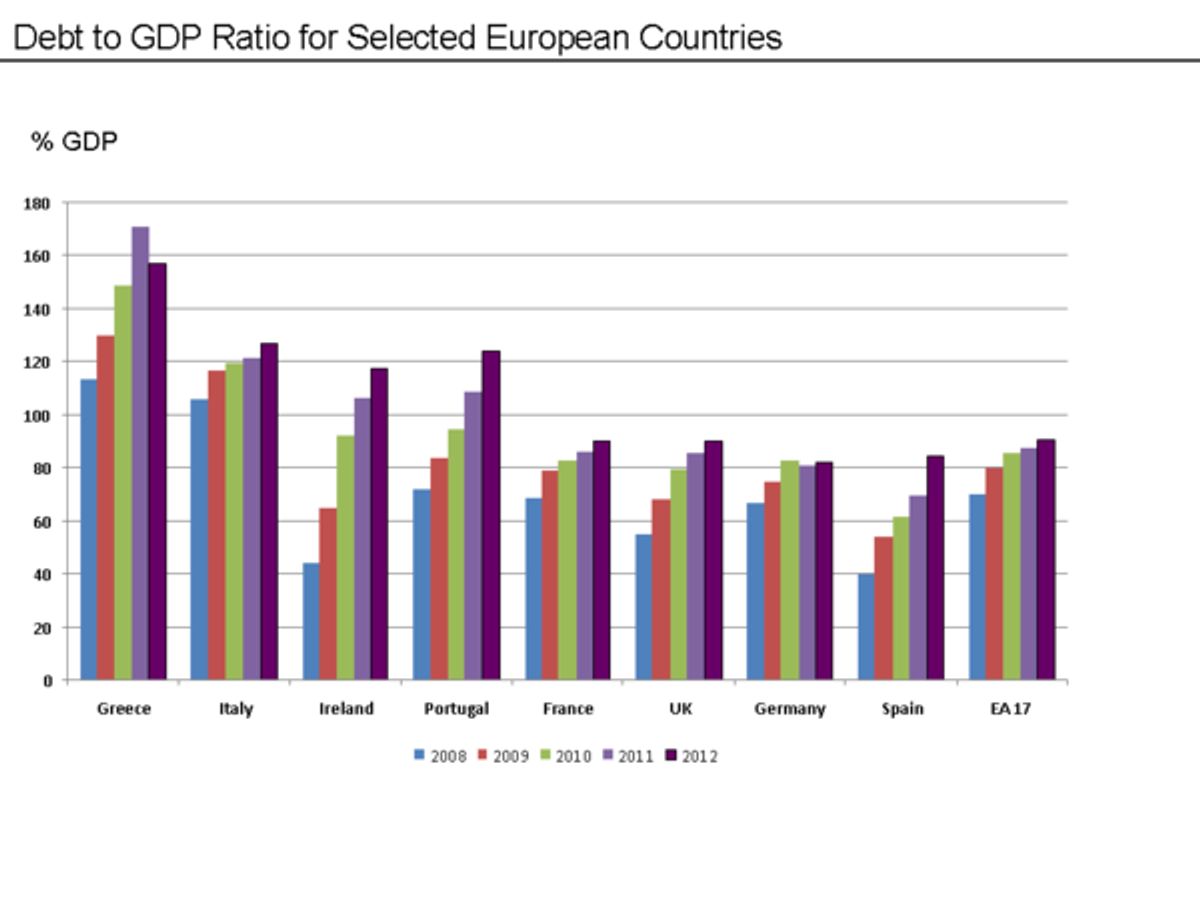Cross-Border Debt Collection in Europe poses unique challenges and opportunities for creditors. As businesses increasingly operate internationally, the ability to recover debts across borders is crucial for maintaining financial stability. This article delves into the strategies and solutions for effective debt collection within the European legal landscape, addressing the nuances of regional laws, cultural differences, and financial considerations. By examining case studies from Spain and Portugal, we provide actionable insights for international creditors seeking to navigate the complex terrain of cross-border debt recovery.
Key Takeaways
- Employing a phased Recovery System enhances the efficiency of debt collection, with escalating measures tailored to debtor responsiveness.
- Understanding local legal frameworks, such as the European Late Payment Directive, is essential for compliance and effective debt recovery strategies.
- Cultural sensitivity and language proficiency are critical in overcoming communication barriers and ensuring successful negotiations with debtors.
- Cost management is vital, with a clear evaluation of collection rates, fees, and the cost-benefit analysis of legal action against potential recovery.
- Professional collection services, like Debitura, offer valuable local expertise and resources, improving the likelihood of successful debt recovery.
Understanding the Legal Framework for Debt Collection in Europe
The Role of the European Late Payment Directive
The European Late Payment Directive (Directive 2011/7/EU) is a cornerstone in the fight against late payments in commercial transactions across Europe. It mandates maximum payment terms and empowers creditors with the right to claim interest and compensation for late payments.
Timely compliance with the directive is crucial for businesses to avoid penalties and maintain healthy cash flows. The directive’s influence is evident in its integration into national laws, such as those of Spain and Portugal, where it enforces strict payment deadlines and supports creditors’ rights.
- Clear contract terms are essential, including penalties for late payments.
- Retention of Title clauses offer additional security for creditors.
- Alternative dispute resolution should be considered before litigation.
The directive’s implementation across EU member states has standardized the approach to managing late payments, creating a more predictable environment for cross-border transactions.
Navigating Regional Legal Systems
Navigating the complex mosaic of regional legal systems is crucial for effective cross-border debt collection in Europe. Each jurisdiction has its own nuances, from the enforcement of court decisions to the recognition of foreign judgments. For instance, Spain’s Autonomous Community of Navarra may have different enforcement practices compared to other regions.
Understanding these variations is key to formulating a successful collection strategy. Here are some practical steps to consider:
- Familiarize yourself with local laws and international regulations, such as the European Payment Orders and the European Small Claims Procedure.
- Seek expertise in the specific legal requirements of the country in question, like Spain’s distinct debt collection regulations.
- Ensure compliance with EU-wide laws, including GDPR, to manage data effectively during the collection process.
Patience and adaptability are paramount. The ability to navigate through these legal intricacies can make or break the debt recovery process.
It’s also important to leverage resources like the European e-Justice Portal, which provides information on rules applicable to enforcement of judgments within the same Member State. This knowledge is indispensable for creditors looking to enforce court decisions across Europe.
Compliance with EU-Wide Regulations
Ensuring compliance with EU-wide regulations is a cornerstone of successful cross-border debt collection. Adherence to the General Data Protection Regulation (GDPR) is paramount when handling debtor data. The European Payment Order streamlines recovery for uncontested debts, bypassing complex court procedures. For small claims, the European Small Claims Procedure offers an expedited process for amounts not exceeding
eu5,000, crucial for efficient recoveries.
The European Enforcement Order facilitates the recognition of judgments across EU member states, significantly easing the enforcement process.
Local partnerships and knowledge of specific regional regulations, such as those in Spain, are essential. Utilizing these EU mechanisms can lead to more streamlined and effective debt recovery strategies:
- European Payment Orders
- European Small Claims Procedure
- European Enforcement Order
Each tool is designed to address different aspects of the debt collection process, ensuring that creditors can navigate the complexities of cross-border collections with confidence.
Strategic Approaches to Cross-Border Debt Recovery
Assessing the Viability of Litigation
Before embarking on the litigation journey, a meticulous evaluation of the case is paramount. Understand the debt size and legal intricacies to determine the appropriate court jurisdiction. Small claims may be handled differently from full-scale civil lawsuits, impacting both strategy and cost.
- Assess the debt amount for jurisdiction
- Identify the debtor’s domicile
- Consider specialized courts for unique legal areas
Calculating the Return on Investment (ROI) is a critical step. Use the formula:
ROI = ((Estimated Recovery Amount
Total Costs) / Total Costs)
100
This calculation will guide your decision, weighing the potential recovery against the expenses involved. Remember, the goal is not just to win, but to do so in a financially prudent manner.
Patience and a strategic approach are essential in cross-border litigation.
Lastly, consider the debtor’s assets and the likelihood of recovery. If the chances are slim, it may be wiser to explore alternative collection methods or even close the case to avoid unnecessary expenditure.
Utilizing Professional Collection Services
Engaging a professional debt collection service can be a strategic move for businesses aiming to recover debts across European borders. Professional agencies like Debitura streamline the complex process of international debt collection, ensuring compliance with regional laws and cultural nuances. These services often include:
- Comprehensive global investigations to support your case
- Access to a network of local debt collection lawyers and bailiffs
- Real-time tracking of your debt recovery efforts
Professional assistance not only simplifies the recovery process but also mandates respectful and fair treatment of debtors, safeguarding your company’s reputation.
It’s crucial to understand the financial implications of employing such services. Collection agencies typically operate on a contingency basis, charging a percentage of the recovered amount. Here’s a simplified rate structure:
| Number of Claims | Accounts < 1 Year | Accounts > 1 Year | Accounts < $1000 | Attorney Placed Claims |
|---|---|---|---|---|
| 1-9 | 30% | 40% | 50% | 50% |
| 10+ | 27% | 35% | 40% | 50% |
Selecting the right agency is pivotal. Look for one with a proven track record in B2B debt collection services, offering everything from accounts receivable support to amicable collections and, if necessary, litigation.
Leveraging Local Expertise and Cultural Understanding
In the realm of cross-border debt collection, local expertise is a game-changer. Knowledge of regional laws, fluency in the local language, and an understanding of cultural nuances can significantly enhance the effectiveness of recovery efforts.
Local legal professionals, such as attorneys and bailiffs, provide invaluable judicial support, ensuring compliance with complex legal systems. Their on-the-ground presence offers a strategic advantage:
- Cultural Sensitivity: Tailoring communication to respect local customs.
- Language Proficiency: Facilitating clear dialogue and negotiations.
- Legal Acumen: Navigating the intricacies of regional debt collection laws.
Embracing local expertise is not just about legal compliance; it’s about building trust and fostering relationships that can lead to successful debt recovery.
Cost management also benefits from local insights. Understanding the financial landscape helps in evaluating the feasibility of litigation and in negotiating settlements that align with local practices and expectations.
Challenges and Solutions in International Debt Collection
Cultural and Linguistic Barriers
Cross-border debt collection in Europe is fraught with cultural and linguistic barriers that can impede the recovery process. Creditors must navigate a maze of cultural nuances and language differences that vary from country to country.
- In Spain, regional dialects and customs can lead to misunderstandings, complicating the collection efforts.
- Portugal’s unique business etiquette and legal terms require a tailored approach for effective communication.
Overcoming these barriers necessitates a strategic blend of local expertise and cultural sensitivity. Creditors should invest in quality translations and seek professionals who are fluent in the debtor’s language and conversant with local customs.
Understanding these challenges is the first step towards crafting solutions that respect the debtor’s culture while ensuring compliance with the necessary legal frameworks.
Regulatory Compliance and Data Protection
In the realm of cross-border debt collection, adherence to regulatory compliance and data protection is paramount. The General Data Protection Regulation (GDPR) sets the standard, requiring meticulous management of debtor data. This includes how customer data is used and stored during the payment recovery process, ensuring the confidentiality and security of consumer financial information.
Compliance is not just a legal obligation; it’s a cornerstone of trust and reputation in the financial services industry.
Cybersecurity is a dynamic landscape, with threats and regulations constantly evolving. A robust cyber security strategy, including testing and risk assessment, is essential to protect data and information assets. Local partnerships and pre-legal actions are also key components, streamlining the recovery process while respecting privacy laws.
- Regulation Compliance: GDPR
- European Payment Orders
- Pre-Legal Actions
- Local Partnerships
Patience and Persistence in Recovery Efforts
In the realm of cross-border debt collection, patience is a virtue. Creditors must be prepared for a marathon, not a sprint. The process can be lengthy, with various stages requiring meticulous attention and perseverance.
- Establishing trust* is pivotal in this journey. Open and honest communication fosters a cooperative environment, increasing the likelihood of a successful resolution.
Recovery is not instantaneous. It unfolds over time, demanding resilience and a strategic approach.
Understanding the debtor’s circumstances and showing empathy can also play a crucial role in facilitating payment. Here are some key points to consider:
- Professionalism maintains respect and keeps dialogue constructive.
- Clarity about past communications underscores the seriousness of the situation.
- Proactive measures, like automatic email reminders, ensure the debtor is aware of their obligations.
Ultimately, a balanced blend of firmness and understanding can pave the way for effective debt recovery.
Financial Considerations and Cost Management
Understanding Collection Rates and Fees
When engaging in cross-border debt collection, it’s crucial to have a clear understanding of the collection rates and fees involved. These costs can significantly impact the overall recovery amount and should be factored into the decision-making process. Knowing the fee structure upfront can save time and resources.
Fee structures vary depending on whether the debt is B2B (Business-to-Business) or B2C (Business-to-Consumer), and are often subject to prior agreements or statutory guidelines. For instance, administrative fees in B2B transactions can be variable, while B2C fees are typically limited by law.
It’s essential to assess the cost-effectiveness of pursuing a debt. High collection fees may diminish the value of the recovered amount, making it imperative to evaluate the potential return on investment.
Here’s a simplified example of how fees might be calculated for a B2B debt:
- Late Payment Fee: €50
- Debt Collection Fee: 3% of €5000 (debt amount) = €150
- Total Fees: €200
- Total Amount Due: €5200 (including principal and fees)
Creditors should be aware of the regulatory framework that may impose limitations on the fees that can be charged, ensuring compliance and fairness in the recovery process.
Evaluating the Cost-Benefit of Legal Action
Before initiating legal proceedings, it’s imperative to assess the potential ROI of such action. This involves a careful analysis of the estimated recovery amount versus the total expected costs, which include court fees, attorney’s fees, and enforcement costs. Use the following formula to guide your evaluation:
ROI = (Estimated Recovery Amount – Total Costs) / Total Costs
Understanding the nuances between small claims and ordinary lawsuits can significantly impact the financial viability of your case. Align your legal strategy with the size of your claim and the specifics of your case to optimize outcomes.
Consider the following steps to accurately assess potential ROI:
- Assess the debt amount to determine the jurisdiction (Small Claims vs. Civil Courts).
- Identify the debtor’s domicile for the correct territorial jurisdiction.
- Consider specialized courts if your case involves specific legal areas, such as insolvency.
An informed decision on the feasibility of legal action is not only financially prudent but also aligns with your long-term recovery goals.
Managing Upfront Legal Costs and Potential Recovery
Before initiating legal proceedings for debt recovery, it’s crucial to assess the potential ROI. This involves a careful analysis of the estimated recovery amount versus the total expected costs, which include court fees, attorney’s fees, and any enforcement costs.
ROI = (Estimated Recovery Amount – Total Costs) / Total Costs \ imes 100%
Understanding this ratio is essential for making informed decisions and managing financial risks.
Estimate the Recovery Amount: Take into account the full debt owed, along with any accrued interest or penalties.
Calculate Total Costs: Factor in all legal expenses, court charges, and ancillary costs associated with the legal action.
Entities should be aware of fixed fees and variable rates, which can be reviewed at official sources like Sede Judicial. While the recovery of legal costs is possible if you win, it’s not guaranteed and is subject to the court’s discretion.
In the event of a negative outcome, having a clear understanding of the upfront costs and the likelihood of recovery can prevent unnecessary financial strain.
Case Studies: Debt Collection in Spain and Portugal
Adapting to Spain’s Debt Collection Landscape
In Spain, the shift from amicable to judicial debt collection is marked by a deep understanding of the cultural and linguistic nuances that influence the process. Navigating the complex legal system requires expertise in regional laws and EU regulations. A strategic approach involves initial pre-legal collection attempts, with the possibility of escalating to judicial proceedings if necessary.
The Spanish legal framework is intricate, with a statute of limitations for most debts at 5 years. Familiarity with key legislation, such as the amended Article 1964 of the Civil Code, is essential for effective debt recovery. Professional collection services, like Debitura, offer tailored solutions that enhance recovery rates while ensuring compliance.
Creditors must balance asserting their rights with adherence to statutory limitations to pursue debt recovery ethically and effectively.
Understanding the fee structure is also crucial. For instance, DCI’s competitive collection rates are tailored to the age and amount of the debt, with no upfront costs for initial case assessment. Here’s a quick overview of their fee structure:
| Claims | Accounts < 1 Year | Accounts > 1 Year | Accounts < $1000 | Attorney Placed |
|---|---|---|---|---|
| 1-9 | 30% | 40% | 50% | 50% |
| 10+ | 27% | 35% | 40% | 50% |
Engaging with a top debt collection agency in Spain can significantly increase the likelihood of successful recovery, with services often provided on a no-cure-no-pay basis.
Effective Recovery Processes in Portugal
In Portugal, the debt recovery process is marked by a blend of amicable solutions and legal actions. Efficient preparation and local expertise are key to navigating the Portuguese legal landscape. Here’s a snapshot of the steps involved:
- Step 1: Initial assessment of the debtor’s financial status and the viability of recovery.
- Step 2: Engagement with professional collection agencies for amicable resolution.
- Step 3: If necessary, escalation to legal proceedings, with a focus on Alternative Dispute Resolution (ADR) for its cost-effectiveness and speed.
The primary goal is to achieve a resolution that respects the financial health of both parties, aligning with Portugal’s economic stability.
Portugal’s debt collection framework emphasizes the importance of cultural understanding and language proficiency. Creditors who adapt to the local context can expect better communication and smoother negotiations. Compliance with EU regulations, particularly GDPR, remains a critical aspect throughout the collection process.
Key Takeaways for International Creditors
International debt collection in Spain and Portugal presents unique challenges and opportunities. Understanding local legal nuances is paramount for effective recovery. Here are the key takeaways:
- Assess the corporate structure of businesses to manage risks effectively.
- Prioritize clear payment terms and solvency assessments to prevent late payments.
- Utilize credit insurance for local insights and legal support.
- In post-bankruptcy scenarios, know your rights and deadlines for claims.
- Consider the cost-benefit of litigation and be prepared for upfront legal costs.
Patience and persistence are essential in navigating the complexities of cross-border debt collection. A strategic approach, combining local expertise with a clear understanding of the legal framework, can optimize recovery efforts.
When exploring essential strategies for international debt collection, consider extrajudicial recovery, arbitration, and legal proceedings. Tailor your approach to the debtor’s jurisdiction and remain vigilant about regulatory compliance.
Explore our in-depth case studies on debt collection in Spain and Portugal, and discover how our tailored strategies have led to successful recoveries for our clients. For a comprehensive understanding of how we can assist you in navigating the complexities of international debt collection, visit our website and learn more about our specialized services. Don’t let outstanding debts disrupt your business—take action today and partner with us for effective debt resolution.
Conclusion
In summary, cross-border debt collection in Europe presents a complex challenge that requires a strategic and informed approach. The intricacies of local cultures, languages, and legal systems necessitate a nuanced understanding and careful navigation. The European Late Payment Directive and other EU-wide regulations provide a framework for action, but local expertise remains crucial. Engaging with professional services like Debitura can enhance the likelihood of successful debt recovery while ensuring compliance with the myriad of regulations. Creditors must weigh the potential for recovery against the costs and risks involved, particularly when considering litigation. Ultimately, patience and persistence, coupled with the right support and knowledge, are key to overcoming the hurdles of international debt collection.
Frequently Asked Questions
What is the European Late Payment Directive and how does it affect debt collection in Europe?
The European Late Payment Directive (Directive 2011/7/EU) aims to combat late payments in commercial transactions. It allows creditors to charge interest on delayed payments, which strengthens their position in recovering debts. The directive is fully enforced in EU countries, including Portugal, and must be adhered to by creditors and debtors alike.
How does the legal framework vary for debt collection within Europe?
The legal framework for debt collection in Europe varies significantly across different countries. Each country has its own set of laws and regulations that govern debt recovery processes. Additionally, regional variations within countries like Spain can make the process intricate. International creditors must navigate both local laws and EU-wide regulations such as the GDPR.
What are the typical rates and fees associated with cross-border debt collection services?
Rates for cross-border debt collection services depend on factors like the age of the account and the number of claims. For example, accounts under 1 year might be charged 30% of the amount collected, while older accounts or those placed with an attorney could be charged up to 50%. Upfront legal costs for litigation range from $600 to $700.
What is the recommended strategy if the possibility of debt recovery is unlikely?
If after a thorough investigation it’s determined that debt recovery is unlikely, the recommended strategy is to close the case. The creditor will owe nothing to the collection firm or affiliated attorney for these results. Alternatively, creditors may choose to continue standard collection activities without proceeding to litigation.
What challenges do international creditors face when collecting debts in Spain and Portugal?
International creditors face challenges such as cultural and linguistic barriers, complex and diverse legal systems with regional variations, and the need to comply with EU regulations like GDPR. Professional services like Debitura can help navigate these challenges by providing local expertise and ensuring regulatory compliance.
What are some key takeaways for international creditors engaging in debt collection in Spain and Portugal?
Key takeaways include the importance of cultural sensitivity and understanding local customs, employing bilingual agents, having local legal expertise, and adhering to regulations like GDPR. It’s also crucial to be patient as international collections can be prolonged and to consider professional support to leverage local expertise.





